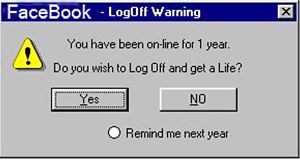How big is your digital footprint? You might be surprised. Go to Pipl.com and type in your name and city of residence. It will show you how much of your personal data and photos are readily available to anyone who wants to look.
Our footprint increases exponentially as we engage more and more with the giant engines of virtual reality, including mobile and social media, e-commerce, gaming, online fashion, online education, big data, outsourcing, cloud computing, cyber security, healthcareIT, and the Internet Of Things. Apple, Amazon, Facebook, Alibaba, and Microsoft make up 5 of the top 10 companies in the world when ranked by market cap. Them and thousands of other digital companies—such as Uber, Airbnb, Netflix–are disrupting and driving our economy.
Being plugged in 24/7 has pros and cons. On the one hand, these online companies create new jobs and opportunities; on the other, they create online addictions. CBS News reports that famous entrepreneur, Richard Branson, is imposing a digital detox program on all Virgin employees: Branson recognizes that excessive screen time has a negative effect on his employees because it reduces their productivity as it undermines their health and well-being.
One of my clients, Eric, alerted me to the risks of excessive screen time back in 2007 when he admitted to “internet addiction.” He would literally surf the web until he collapsed with exhaustion in front of his computer screen. Eric is not an isolated case, especially as our jobs become more dependent on digital technologies. We are all at risk of “internet fatigue” that undermines our productivity as employees and our relationships with family and friends. Eric’s remedy was an equally extreme antidote—he unplugged from the internet and cycled through 9 different countries over 5 years. You can read his amazing story here.
Social entrepreneurs like Eric are springing up to organize a movement that will help individuals unplug from virtual reality and reconnect with nature and people. They will create digital detox programs for various work and home environments to prevent “internet fatigue,” and develop treatment regimens for online addictions.
I have to admit, I’m discouraged by the recent FaceBook (FB) scandal that shows how quickly and easily my online data can be ‘scraped’ and sold to big business and big government. As an early adopter of internet platforms, I loved how it empowered ordinary people to do things that were previously the exclusive domain of such top down structures of control and power. But, increasingly, our personal power online is being overtaken by digital profiteers like FB.
Predictability is control
The business of FB is data collection from its 2 billion users. FB sells our data to third parties because that is how it makes money. Third parties like Cambridge Analytica mine that data and package it as ‘predictability’ before they sell it to customers. Is it any wonder that big business and big government are buying our data to restore and strengthen their control over what we consume with our minds and money? It might also help to explain why FB & Co. advocate for self-regulation and why governments are reluctant to regulate in the best interests of consumers; one hand feeds the other.
Did you know that Cambridge Analytica and other data miners use computer models that can assess your personality with a startling degree of accuracy from only “10 likes” on FB? From 150 likes it can predict your behavior better than your parents and siblings, while it can do better than your spouse if you give it 300 likes.
When you upload your contacts to FB, the social media giant uses that as a starting point to build a profile on those who don’t have a profile. By collecting photos of unnamed people, or email addresses it knows its users contact, or the results of inane online quizzes, the company can figure out who new people are and who else they know–even if they don’t have a FB account.
Even if you’re not using FB, it is using you. Look at the top of just about any web page and you’ll see a small button allowing you to “like” it on FB; it uses that button to track your online activities even when you aren’t logged into it. FB has tracking software on hundreds of thousands of the world’s top websites. For example, when I search for used items on Kijiji, such as tires, ads for the same then show up on FB’s Marketplace, even though I never mentioned anything about tires in my FB posts.
The trade-off between privacy and convenience is at the heart of social media
You might think all is harmless enough but you don’t need to know how a TV works to understand how TV steals your time and manipulates your buying habits. If you don’t like what TV is doing, you can switch it off. Same with social media. I recently reduced my digital footprint on Pipl.com by simply changing the Privacy settings on my social media accounts.
But, as a result of doing research for this article, I’ve decided to close my personal FB account. It is convenient to see what family and friends and favorite orgs are doing in other cities and countries. However, a self-imposed exile from social media may help me to think more deliberately about bigger issues at stake while exercising my right to privacy.
Now that warmer weather and longer days are upon us, I also want to invest my limited time in offline activities for awhile. I can always open another FB account with another email later if I so desire.
There seems no way to stop the inevitable march towards virtual reality…but the current FB scandal is an excellent reminder that it may be time to slow it down and guard not only our personal privacy but our collective health and human-ness.

